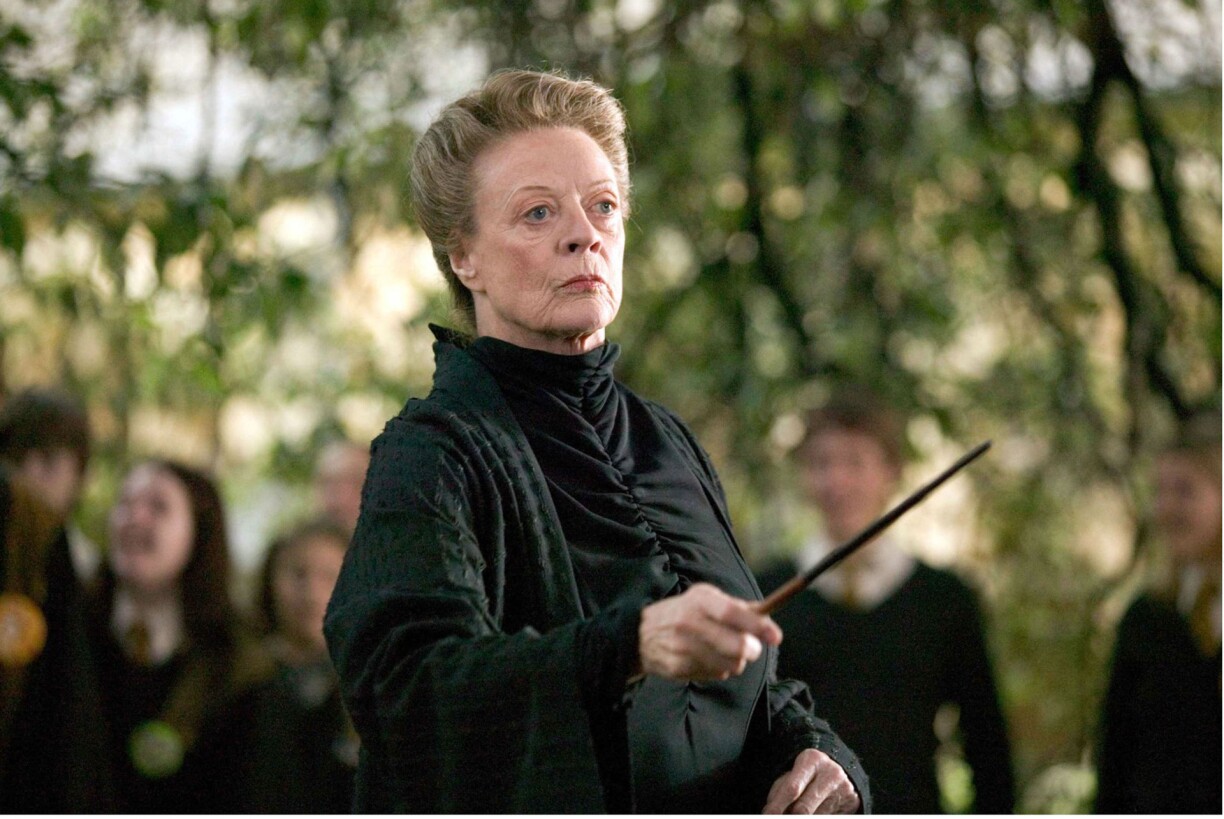
Her death, announced by her sons Chris Larkin and Toby Stephens, has prompted a flood of tributes from fans and colleagues alike, celebrating a career defined by extraordinary versatility, charisma, and wit.
The Bafta TV and film academy said in a statement that it was “saddened” to hear of her death, calling her “a legend of British stage and screen”. It gave her a special award and fellowship to acknowledge her acclaimed career, which Prime Minister Keir Starmer said had made her a “true national treasure”.
Smith was best known in recent years for her roles in two major cultural touchstones: the “Harry Potter” series, where she played the formidable Professor McGonagall, and the hit television period drama “Downton Abbey,” in which she portrayed the sharp-tongued Dowager Countess, Lady Violet Crawley. These roles earned her widespread acclaim, introducing her to new generations of fans around the globe.
Born on December 28, 1934, in Oxford, Smith was the daughter of an Oxford professor of pathology and a secretary from Glasgow. She made her stage debut in 1952 with the Oxford University Dramatic Society, and her career took off shortly after, with acclaimed performances in London’s West End and Broadway in the 1950s. A turning point came in 1959 when she appeared opposite the legendary Laurence Olivier in a stage adaptation of Shakespeare’s Othello. This led to her joining Olivier’s National Theatre company, where she honed her craft and solidified her reputation as one of Britain’s finest actors.
Smith’s film career blossomed in the 1960s and 1970s, bringing her international stardom. Her portrayal of the unorthodox Edinburgh schoolteacher in The Prime of Miss Jean Brodie (1969) earned her the Academy Award for Best Actress. She later won another Oscar for Best Supporting Actress in California Suite (1978), further establishing her as a formidable presence on screen. In total, she received six Oscar nominations, two wins, and amassed a remarkable collection of accolades, including two Academy Awards, three Golden Globes, five BAFTAs, and a Tony Award.
Despite her towering achievements, Smith remained a private and humble figure. “I led a perfectly normal life until Downton Abbey,” she told the British Film Institute in 2017, acknowledging the way the hit series changed her life. Though she was initially hesitant to join the show’s big-screen adaptation, she eventually did so, contributing to the global success of the 2019 film.
Smith’s on-screen performances were often marked by her ability to convey sharp wit and biting humor, yet she could bring great depth and vulnerability to her characters. Director Nicholas Hytner, who worked with Smith on The Lady in the Van (2015), praised her for her unique ability to embody complex emotions: “She can be vulnerable, fierce, bleak, and hilarious simultaneously.”
“It’s true I don’t tolerate fools but then they don’t tolerate me, so I am spiky,” she told The Guardian in 2014.
“Maybe that’s why I’m quite good at playing spiky elderly ladies.”
Behind her fierce talent, Smith faced personal challenges with grace. She battled breast cancer in 2007, continuing to work during her chemotherapy treatment while filming Harry Potter and the Half-Blood Prince (2009). She also suffered from Graves’ disease, a thyroid condition, but persisted in her dedication to her craft.
Throughout her career, Smith’s personal life often remained in the background. Her marriage to fellow actor Robert Stephens, with whom she had two sons, ended in 1973. She remarried in 1975 to screenwriter Beverley Cross, who passed away in 1998. Her sons, both successful actors in their own right, shared a touching tribute following her death, expressing gratitude for the support and love they received during this difficult time.
Dame Maggie Smith leaves behind a legacy not only of artistic brilliance but also of perseverance and grace. Her ability to inhabit characters with humor and humanity made her one of the most beloved and respected actors of her generation. As tributes pour in from fans, colleagues, and institutions, it’s clear that Smith’s impact on the world of stage and screen will be remembered for generations to come.